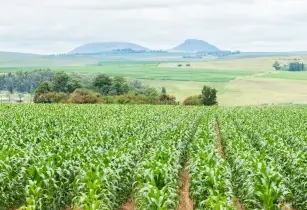Four UK agri-tech centres – CHAP, CIEL, Agri-EPI and Agrimetrics – have formed a sustainable farming partnership with world leading agricultural research and training organisation, Wageningen University & Research (WUR) in the Netherlands
The new partnership will pursue advancing science and innovation to help meet the challenges of sustainable global food production, including the reduction of its environmental impact.
Recognising the agri-tech centres’ position as the hub of UK agrifood innovation, WUR approached them with a proposal to collaborate. The partners will seek to establish new, joint opportunities for innovative public-private partnerships in agrifood science and business.
The partnership will explore opportunities in areas such as regenerative agriculture; crop, pest and endemic disease management; data platforms and modelling; automation to address labour shortages; genomics; and precision agriculture and aquaculture. These are in alignment with the UN Sustainable Development Goals and the aims of the European Green Deal.
A senior team from the agri-tech centres returned recently from a successful trip to the WUR, where the partners learned more about each other, toured the impressive facilities and discussed common goals. A representative from the UK Embassy in The Hague joined the visit to support the partnership’s development.
Speaking on behalf of the UK agri-tech centres, CIEL’s chief executive Lyndsay Chapman explained, “Today’s food system is global in nature, so the approach to tackling its biggest sustainability challenges should be to collaborate across borders. Our partnership with WUR is aimed at reducing fragmentation in agri-food research and innovation to speed up the transformation of the food system for the benefit of both people and planet.”
Prof Robert Hall, deputy business unit manager Bioscience and professor of Plant Metabolomics at Wageningen University’s Laboratory of Plant Physiology, said, “Of all global organisations, WUR collaborates most with UK scientists, but so far this joint working with our North Sea neighbours has been on an ad hoc basis. With the strengths, connectivity and scope of the national agri-tech centres, WUR has now a partner of considerable reach in the UK. Both of us share the desire to combine forces and create the necessary critical mass to jointly tackle the key sustainable agrifood challenges and define innovative solutions that can have maximum positive impact on global society.”





